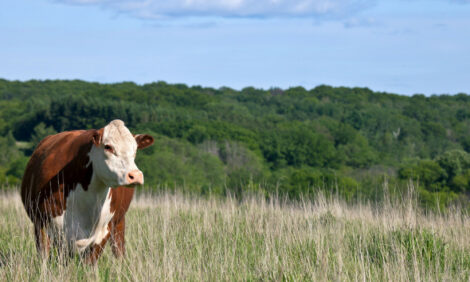



Animal Transport Vital to Scottish Livestock, Says NFUS
SCOTLAND, UK - NFU Scotland has outlined the importance of animal transport to the Scottish livestock industry.Responding to the Defra call for evidence on controlling live exports for slaughter and the improvement of animal welfare during transport after the UK leaves the EU, the Union said that, in Scotland, welfare during transport is taken very seriously, both for the reputation and the quality of Scotland’s products.
The high animal welfare standards which the Scottish industry delivers is apparent on the many necessary journeys undertaken each year, where animals are transported around Scotland and to other parts of the UK.
NFUS considers that the export market has a vital role to play in providing options for producers and supporting a healthy market within the UK. Exports should be well managed and monitored to ensure that all journeys, whether for breeding, slaughter or further finishing, meet with the current animal welfare standards established across the EU.
Specifically, on live exports to slaughter outside the UK, the Union stated that, while a very small part of the Scottish trade, the option of well managed and regulated exports should be retained, particularly given the uncertainties for trading post-Brexit.
NFU Scotland President Andrew McCornick said: "Here in Scotland, animal transport is vital to our livestock industry and is carried out to the highest welfare standards.
"It is an extremely emotive subject and one that generates a considerable amount of mis-information and negativity. Given how important animal transport is to Scotland, decisions must be based on sound evidence and not rhetoric.
"The imposition of new rules and standards, paired with the possibility post-Brexit of goods produced to lower welfare standards being imported here, could damage the resilience of the Scottish industry and lessen rather than improve controls on production standards.
"Animals travel for a variety of reasons including breeding, further finishing, slaughter or seasonal movements and these movements are essential for Scottish livestock farmers and crofters. Regardless of the reason for transporting stock, all journeys must meet the same regulatory conditions. The welfare standards are not determined by either the destination or the purpose for the journey.
"Live exports play a role in modern production systems providing an alternative market, especially when seasonal production levels are high, serving to support the home market prices. These movements are important to industry but should be well managed and regulated to minimise the risk of welfare problems.
"Given the uncertainty over future trade which the UK livestock industry is currently facing, there should be consideration by government to ensure that opportunities for the UK industry are not limited through domestic regulation.
"Any ill-considered decision to ban live exports to the continent by ferry also has the potential to be the thin end of the wedge. Scotland’s island livestock production prides its self on high welfare and any implication that journeys by ferry are ‘bad welfare’ could be damaging to their reputation.
"As seen by the recent closure on Orkney, the viability of slaughterhouses on Scottish islands is challenging, making transport off islands for slaughter a necessity. Welfare during these journeys is taken very seriously.
"Regrettably, our recent offer to show the Secretary of State for Environment, Food and Rural Affairs Michael Gove some of the bespoke high welfare systems developed to ship animals off the islands was declined but the invitation remains open.
"We want to ensure that, when he arrives at his decisions on transport, Scotland’s ability to transport animals at home, to other parts of the UK and abroad is preserved and our record in meeting the highest animal welfare standards is recognised."
TheCattleSite News Desk


